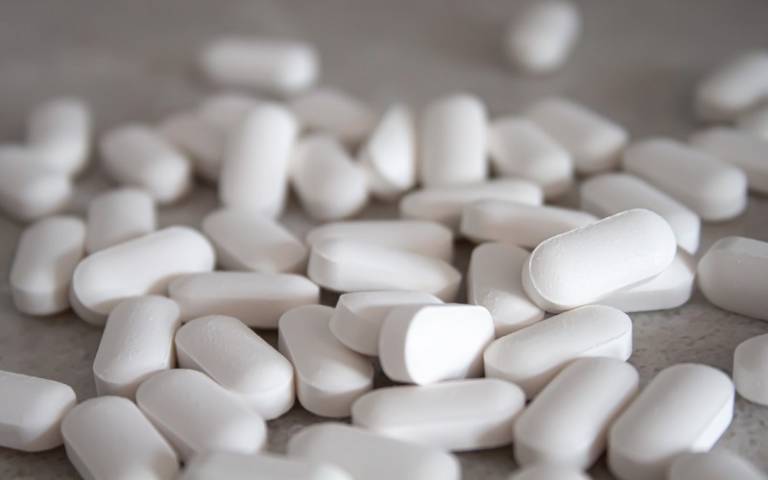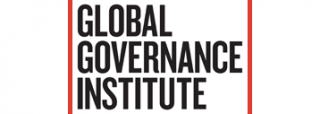The ‘hard-wearing pharmaceutical industry’ that is thriving in the midst of a pandemic
4 March 2021
Black and grey markets for pharmaceuticals are thriving during the Covid-19 pandemic, especially in low- and middle-income countries. Julius Mugwagwa and Margaret Siyawamwaya explain why this is a worrying public health concern.

By Julius Mugwagwa* and Margaret Siyawamwaya**
The complexity that typifies health care requires a systems approach, the sort of thinking that considers many interrelated variables before reaching a solution. Like many businesses worldwide, the pharmaceutical industry in low- and middle-income countries (LMICs) has underperformed during the Covid-19 pandemic due to logistics and supply chain constraints. Further, there has been a decrease in the demand for their usually best-selling products because people are prioritising bread-and-butter issues over buying chronic medicines, for example. Meanwhile, in the same regions of the world there is another ‘pharmaceutical industry’ that seems to be thriving. A high demand for goods and simpler logistics and supply chains are all characteristics of this profiteering industry.
More than the desire to adhere to lockdown restrictions is the desperation for treatment or preventative solutions for the Covid-19 infection from both pharmaceutical products and herbal remedies. Believed to be the ‘wonder drug’ and widely promoted on social media, an increase in demand for the antiparasitic drug, ivermectin has risen internationally. As people clamour for fast answers, the opportunistic bootleg medicines market is enjoying its fair share of the demand. There have been arrests for illegal possession and attempted smuggling of ivermectin tablets into South Africa through the O.R Tambo and King Shaka airports. Some of the banned medicines were part of the passengers’ hand luggage on the plane and are estimated to be worth at least a hundred thousand to millions of South African Rands. In addition to ivermectin, some smugglers were found in possession of an anti-inflammatory, diclofenac sodium and an antibiotic, amoxycillin thus exemplifying the extent to which this market goes to cover a wider range of products. The South African Health Products Regulatory Authority (SAHPRA) has however granted approval for medical doctors to use ivermectin to treat Covid-19 on ‘compassionate grounds.’
Illegal distribution of medicines is an archaic problem however, it does not always imply that the medicines are counterfeited but that the merchant is not authorised to distribute pharmaceutical medicines. Alternatively, it could be a licensed distributor violating the law on the type of product dispensed and conditions of dispensing such as the Pharmacist at Ahmed Al-Kadi (AAK) private hospital in Durban, South Africa, who was dispensing ivermectin to patients prior to authorisation by SAHPRA. Included in this category is the grey market that diverts authentic medicines from their legitimate chain to a different market. Underground distribution includes prescription and non-prescription as well as generics and patented medical products, which could either be authentic or non-authentic. A patient can therefore acquire any drug of their choice without the need to pay a consultation fee or acquire a legal document (prescription) from a medical practitioner. The illegal system keeps surviving each emerging epidemic or pandemic given the general inelastic demand, typical of pharmaceutical medicines. The lack of regulatory oversight on products being supplied through the illegal chain is a worrying public health concern and contributes to the widespread problem of substandard and falsified medical products globally.
Challenges in logistics and supply chain of pharmaceutical products loom large in LMICs and constantly require serious innovation, particularly as the product reaches closer to the patient. There have been reports of banned substances being smuggled into Zimbabwe from South Africa across the crocodile-infested Limpopo river in a canoe, to avoid the customs officers at the official Beitbridge border post. Perhaps the heart of the argument is that the general public views this market as just an alternative, yet more convenient supply chain comparable to buying fruit, vegetables or clothes on the street markets. The illegal distribution of medicines is not only peculiar to Africa but has been widely reported in other regions such as the Americas and South East Asia. As of 4 March 2021, Brazil had the worst Covid-19-related death toll of nearly 260 000, outside the United States of America. The country has begun mass vaccinations of the Sinopharm vaccine however, in Rio de Janeiro, the vaccine is now also available on the black market, in addition to ivermectin and supplements such as vitamin D, vitamin E, Selenium and Zinc. Rio de Janeiro has historically been an epicentre of illegal distribution of medicines. In contrast, the Philippines was also hit hard by the pandemic yet the country is still waiting for the first delivery of the Pfizer-BioNTech and AstraZeneca vaccines, which were expected to arrive before the end of February 2021. In December 2020, members of the Armed Forces of the Philippines and Presidential Security Group were reported to have received doses of the Sinopharm vaccine thus causing an outrage among members of the public who are desperate for inoculation. This exacerbates the need to access medical products from the bootleg market. The high demand for the vaccine has led to many Chinese workers in the Philippines accessing doses from the black market, at a price multiple times higher than the 200 Yuan (USD$30) cost for the same dose in China.
The vaccine roll-out strategy for countries could impose a feeling of being at the back of the queue on those excluded in the first-priority group. Consequently, the public then opts to rely on the unregulated market. One of the key considerations in planning for the distribution of the Covid-19 vaccines has been the need to maintain optimal conditions in transport and storage, particularly in LMICs. Failure to comply with storage conditions will lead to degradation of these fragile products thereby making them to lose potency. Without the proven regulatory oversight and management by trained personnel, there is no assurance that these conditions are adhered to as the products change hands. Inoculating ineffective vaccines in one corner of the world will impede population immunity and global health efforts being made to beat the pandemic.
Economic demand for goods is a healthy feat but how do we deal with a demand that draws unwelcome guests to the public health table? Despite the questionable sources of medical products sold on the illicit market, the quality of the products and their effects on population health should be of primary concern. As emphasis has been rightly placed on achieving herd immunity and innovating in the supply chain of medicines, we hope that experiences from this pandemic will be a bespoke inflection point in filling knowledge gaps and gradually starving the unregulated medicines market, globally.
* Dr Julius Mugwagwa is Associate Professor, University College London, Dept of Science, Technology, Engineering and Public Policy & Global Health Thematic Director, UCL Global Governance Institute.
** Dr Margaret Siyawamwaya is a Lecturer in Pharmaceutical Sciences at the University of Zimbabwe, Department of Pharmacy and Pharmaceutical Sciences.
 Close
Close


